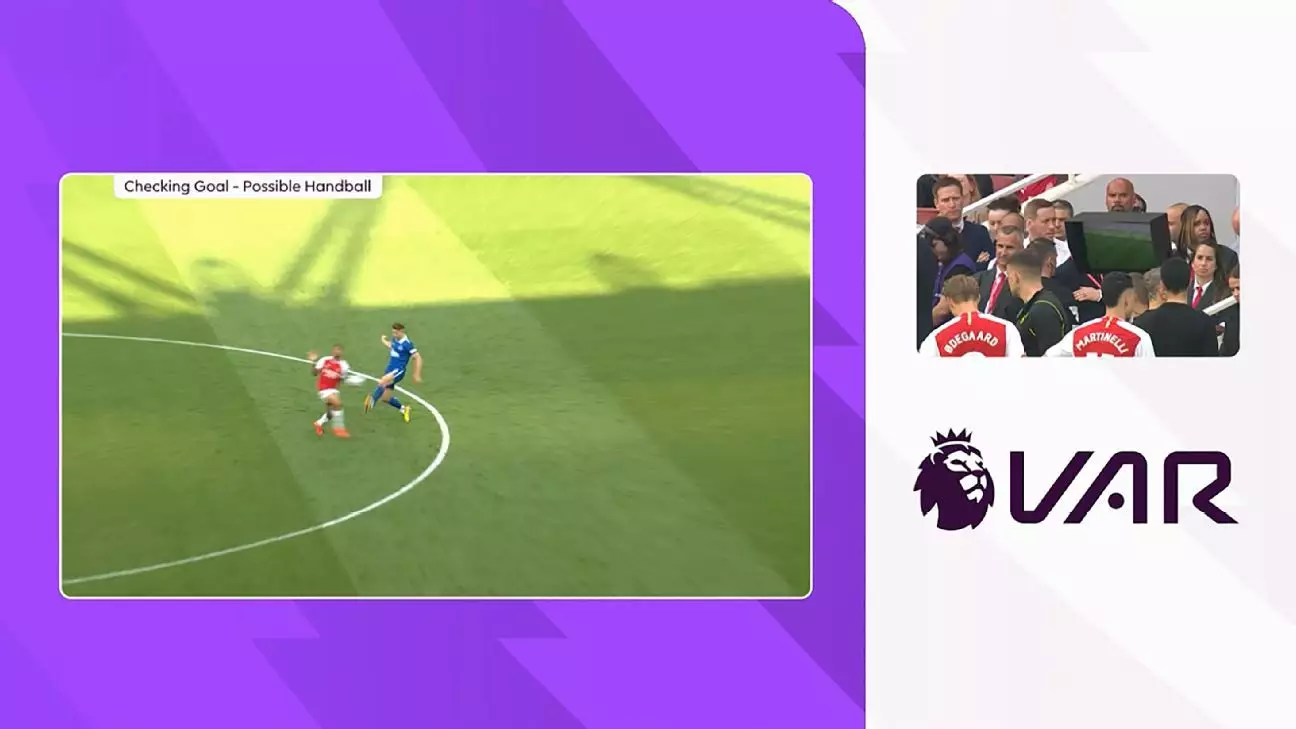In the world of football, the Video Assistant Referee (VAR) system has become a constant source of controversy, particularly in the Premier League. Every week, fans are left scratching their heads at some of the decisions made by VAR, raising questions about the accuracy and consistency of the system. The recent incidents involving Arsenal’s win against Everton and Wolverhampton Wanderers’ Nélson Semedo have once again ignited the debate surrounding VAR in the Premier League.
In a match between Arsenal and Everton, referee Michael Oliver was faced with a crucial decision regarding Arsenal’s winning goal. The VAR, Stuart Attwell, directed Oliver to review the goal due to a potential handball in the buildup by Gabriel Jesus. Despite the VAR’s advice, Oliver decided to let the goal stand, sparking further debate on the interpretation of the handball rule. This incident highlights the subjective nature of VAR decisions and the difficulty in maintaining consistency across different matches.
On the other hand, Wolverhampton Wanderers have had their fair share of VAR controversies, with Nélson Semedo receiving a red card after a challenge on Liverpool’s Alexis Mac Allister. The decision to upgrade the yellow card to a red card raised eyebrows, especially considering the team’s overall negative VAR score in recent seasons. The incident once again raises questions about the interpretation of fouls and the consistency of VAR decisions in the Premier League.
In yet another contentious decision, Newcastle United were awarded a penalty after Bryan Mbeumo clipped the foot of Lewis Hall. However, upon VAR review, the penalty was cancelled as the foul was deemed to have occurred outside the box. This incident sheds light on the complex nature of VAR rulings and the challenges in ensuring fairness and accuracy in decision-making.
While VAR has been criticized for its controversial decisions, it has also played a crucial role in correcting mistakes and injustices on the field. The rescinding of Andre Brooks’ red card for Sheffield United is a prime example of VAR being used to rectify a wrong decision. In cases where referees misinterpret incidents or make errors, VAR serves as a valuable tool in ensuring fairness and accuracy in disciplinary actions.
The use of VAR in the Premier League continues to be a hot topic among fans, players, and officials alike. The system’s impact on the outcome of matches and the interpretation of rules remain contentious issues that need to be addressed. As the debate surrounding VAR rages on, it is essential for stakeholders to work towards improving the system and enhancing transparency in decision-making.
The impact of VAR decisions in the Premier League is undeniable, with each week bringing new controversies and debates. While VAR has its benefits in correcting mistakes and ensuring fairness, its inconsistent application and subjective nature have led to widespread criticism. As football continues to evolve, it is crucial for authorities to address the challenges associated with VAR and strive towards a more effective and transparent system of decision-making.
